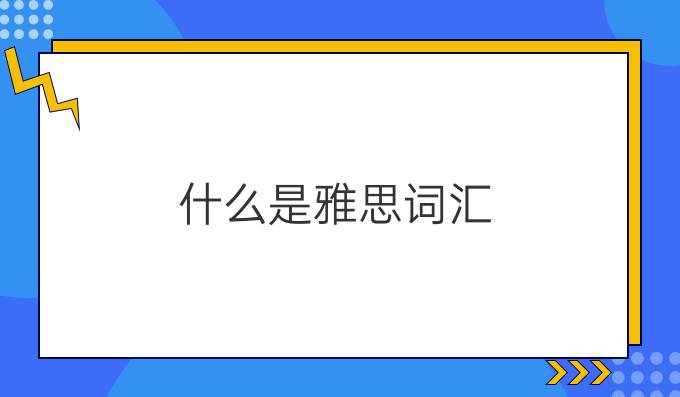很多人经常会去搜索一些雅思*词汇,关于雅思写作*词汇(其实口语也一样),小编只想说:任何*词汇,只有在特定的语境中,才能被称为*词汇。没有普适地,独立于上下文存在的*词汇。所以,本文将分析的是剑桥雅思官方*的满分范文里的2个语段。看*如何让我们看起来平淡无奇与*无关的词汇显得高级。

1、From a personal perspective, it can be argued that these courses provide more job opportunities, career progression, better salaries, and therefore an improved quality of life for students who take them. On the societal level, by forcing people to choose particular university subjects, governments can ensure that any knowledge and skill gaps in the economy are covered.
雅思*在这个段落中,论述了大学生学习理工类学科的好处!具备大学英语四级(CET-4)词汇量的同学,你们会发现这个段子你基本上都能看懂,这些词汇有一个共同特点 — 具体,比如provide more job opportunities *更多工作机会, career progression 职业发展, better salaries 丰厚的工资。此外,像skill gaps in the economy are covered,缩短经济时代中的技能差距,有多少同学能够想到用cover这个单词来表示“缩短”呢?所以,你会发现真正的高手写出来的雅思作文你是可以看懂的,但是,很多词汇你却写不出来。
2、By building such easy-to-reach sporting facilities, people who lead sedentary life are more likely to walk out rather than sitting in front of the screen all day. Besides, the diverse sports facilities can cater for all ages. For example, the outdoor sporting field is mostly used by young people to play football or basketball; likewise, fitness facilities built in the community are beneficial for elderly people who enjoy warm-up exercise.
上面这个段落是*用来论述修建体育设施是如何改善人们健康的。你会发现某些词汇与该大作文话题高度相关!比如,easy-to-reach sporting facilities 触手可及的运动设施, sedentary life 久坐不动的生活状态, cater for all ages 适合不同年龄的人,warm-up exercise 热身运动,如果这些词你无法脱口而出的话,那么我便有理由认为任何一个涉及到健康方面的观点你是写不好的。而这些,正是我们苦苦以求的雅思写作*词汇。
通过上面两个例子我们可以看出所谓的*词汇不是单独的某个词,而是要放在作文中才能显示它的高级。
 沪公网安备31010102007649号
图书经营许可证:第A7651号
版权所有:上海朗阁教育科技股份有限公司 Copyright 2005 LONGRE EDUCATION GROUP All Rights Reserved
沪公网安备31010102007649号
图书经营许可证:第A7651号
版权所有:上海朗阁教育科技股份有限公司 Copyright 2005 LONGRE EDUCATION GROUP All Rights Reserved